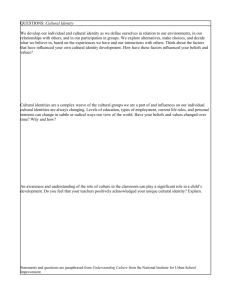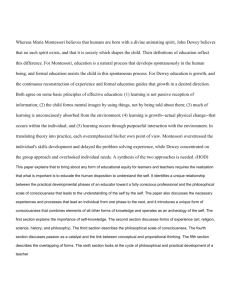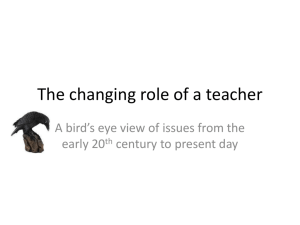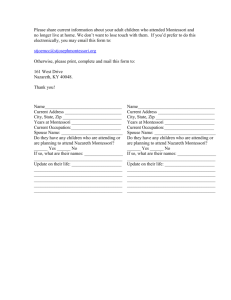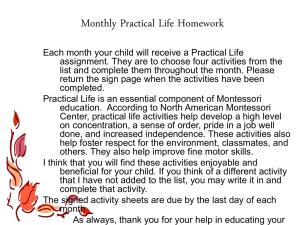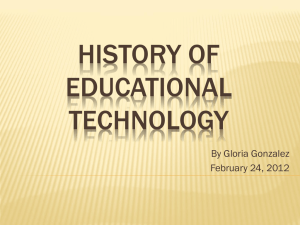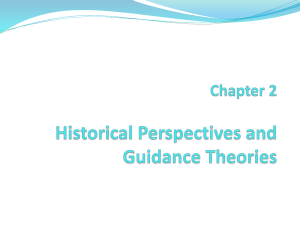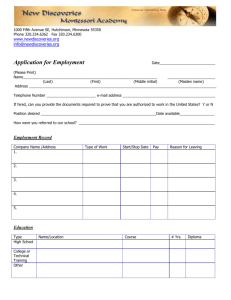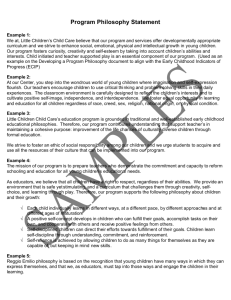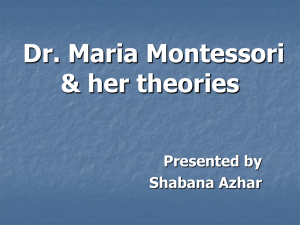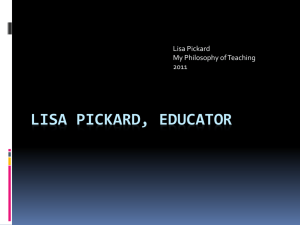Philosophy of Education: A Historical Perspective
advertisement
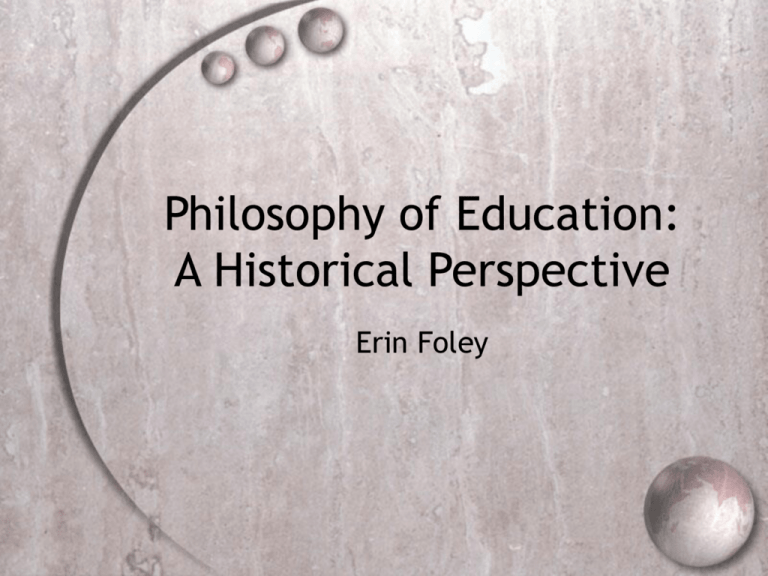
Philosophy of Education: A Historical Perspective Erin Foley John Dewey 1859-1952 Experiential Education Education has a social purpose; the goal is to create a better society Learning takes place through realistic tasks and challenges “Education is life itself.” Experiences offer a learning moment, whether positive or negative --John Dewey Teaching and curriculum need to take into account the individual personalities and experiences of students Source: John Dewey, the Modern Father of Experiential Education by James Neill, http://wilderdom.com/experiential/ExperientialDewey.html Maria Montessori 1870-1952 Founder of the Montessori Method Montessori Principles: Individualized Liberty of the Child Observation of the Directress Preparation of the Environment Learning develops through discovery Idea of the work period, where students choose activities and work until they are done Materials are specifically designed so the students can use them independently Children teach themselves; the teacher is the facilitator in the learning process Education should serve the whole of each individual child Source: Montessori Philosophy, www.casadimir.org John Piaget 1896-1980 Cognitive Development Learning is an active process Theory of assimilation and accommodation: concepts are introduced to the cognitive structure and then the structure is redesigned to incorporate the new information Teachers act as facilitators to guide and stimulate students Instruction should be individualized Readiness approach: children must reach certain milestones of maturity before they can learn certain concepts Piaget’s theory of Cognitive Development Source: Piaget by Wanda Y. Ginn, http://www.sk.com.br/sk-piage.html Similarities All three philosophers believed in an exciting, active learning environment that will engage students in the learning process Montessori, Dewey and Piaget believed that the teacher works as a facilitator and guide, not as the lone lecturer at the front of the room Students drive instruction and teaching should be individualized to accommodate each student and their experiences and maturation Montessori and Piaget believed the learning process progresses through a series of developmental steps Differences While Dewey emphasized the importance of meeting the needs of each child, he was a strong proponent in the belief that the purpose of education is to build a strong society through socialization Montessori specifically focused on improving the individual person, rather than society as a whole My Philosophy Like Dewey, Piaget and Montessori, I believe children learn best when fully engaged; therefore school should be an interesting environment that incorporates activities children find intriguing Like Dewey and Piaget, I believe materials and instruction should be developed for the individual needs of each child or small group of children, not the pre-determined goals set by curriculum companies Like Dewey, I believe materials and instruction should be relatable for children and reflect reallife tasks for students Works Cited Brick, Blanche. “Changing Concepts of Equal Educational Opportunity: A Comparison of the Views of Thomas Jefferson, Horace Mann and John Dewey.” American Educational History Journal 32.2 (2005): 166-173. Print. Ginn, Wanda Y. Piaget. 5 September, 2010. <http://www.sk.com.br/sk-piage.html>. Shortridge, P. Donohue. “Maria Montessori and Educational Forces in America.” Montessori Life 1 (2007): 34-47. Print. Neil, James. John Dewey, the Modern Father of Experiential Education. Wilderom: A Project in Natural Living and Transformations, 2005. Web. 4 September, 2010. Wilhelmi, S.V. Montessori Philosophy. Casa Di Mir Montessori School. 4 September, 2010. <http://www.casadimir.org/montessoriphilosophy.htm>.
